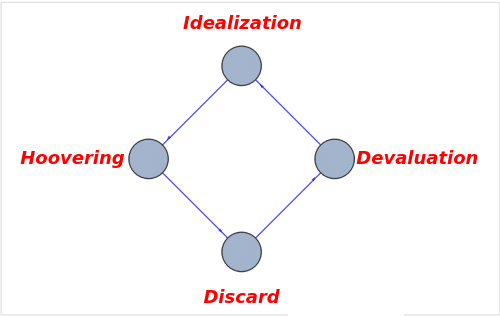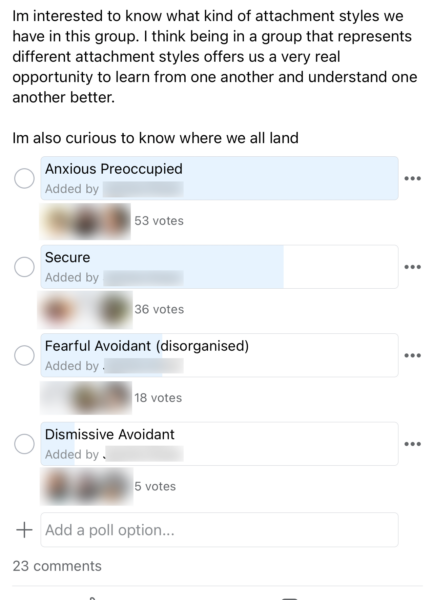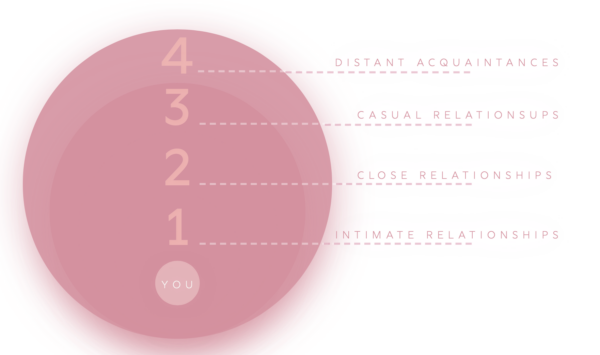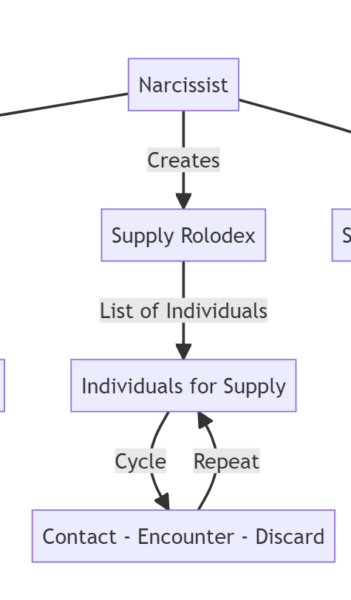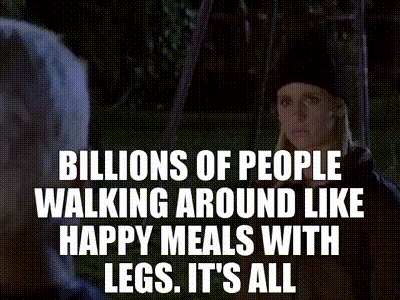So, do narcissists get over their exes quickly?
This is always a complicated question to answer because the simple nature of a narcissist is that ultimately they kind of lack empathy for anyone or anything outside of themselves. So for them, there’s nothing usually to get over for a relationship. Ultimately they see their exes as pawns to get what they want.
The truth is I’ve talked a lot about this in the past with regards to narcissistic supply and how they almost have these people set up to give them certain things.
So, if you’re wondering whether your ex, who might be a narcissist, is getting over you or how quickly they will move on, the question is poorly framed in my opinion.
This is because they don’t really perceive you as someone they need to get over.
And this entire argument is going to argue this point.
We’re going to cover things like,
- How They Discard Before Devaluing You (In Their Mind)
- Why You Are So Stuck On A Narcissist Leaving You
- What To Do About It
- Understanding Why Narcissists Come Back
Let’s dive in!

What Are Your Chances of Getting Your Ex Boyfriend Back?
Take the quizWhy The Narcissist Actually Can Discard Before Devaluing You
We’ve all heard about the narcissistic abuse cycle (and if you haven’t here’s my handy dandy graphic,)
You’ve got the typical four stages:
- Idealization
- Devaluation
- Discard
- Hoover
But just recently I came across this video by narcissistic expert Sam Vaknin.
What sets his research apart is that he not only studies narcissists but is also a diagnosed narcissist himself. This unique perspective offers insights on how a narcissist approaches situations that most who study narcissists can’t really provide.
Vaknin made an intriguing point that I had not heard before.
He suggested that, contrary to the traditional order of the narcissistic abuse cycle, narcissists actually discard their targets before devaluing them.
The devaluation phase in a narcissistic relationship and the separation phase experienced in early childhood and adolescence seem to be connected.
It appears that when a narcissist discards someone, they adopt the behavior of a defiant and contemptuous adolescent, often distancing themselves. This negative identity formation involves defining their identity in opposition to the other person’s.
Such behavior is commonly observed among adolescents separating from parental figures and is also prevalent among narcissists during the discard phase. It’s important to note that narcissists mentally discard their targets before actually doing so in reality.
While they may need to keep the individual around for their own purposes, such as narcissistic supply, in their minds, they have already discarded them. The devaluation phase typically follows the discard phase, similar to the separation phase experienced in reality. During this stage, the idealized image of the person is replaced by a more realistic and devalued perception.
This explains why it feels so abrupt when a narcissist breaks up with you.
The transition from love bombing and shared fantasies to devaluation can be disorienting. It leaves you feeling confused and guilty.
And one unfortunate outcome from this is that our clients typically blame themselves.
Why You Are So Stuck On A Narcissist Leaving You
I believe it relates to childhood experiences.

What Are Your Chances of Getting Your Ex Boyfriend Back?
Take the quizConsider a newborn baby: they are unable to communicate effectively, they can’t talk or walk, and they rely on constant feeding. Their primary means of communication is crying.
Crying is their way of being seen—it’s a life-preserving mechanism.
They continue to cry until their needs are met.
When a narcissist leaves you, it triggers internalized feelings of abandonment.
For many individuals with an anxious attachment style, any hint of abandonment is a core wound that sets them off.
And yes, most of the individuals we coach have anxious attachment styles:
So, what’s the fix?
How do you stop yourself from internalizing? Well, you have to engage in immediate self-reparenting.
What To Do To “Self Re-Parent.”
There are six specific things you can do:
- Journal everything to become self-aware of your emotions
- Make a documentary about yourself
- Establish boundaries
- Empathize with yourself and become your secure source of support
- Transition from fantasy with your ex to reality without them
- Become ungettable by focusing on personal growth and exploring the world.
Let’s do a quick break down of these seven things.
Thing #1: Journal Everything
Keeping a journal can be a powerful tool for self-reflection and self-discovery.
By regularly writing down your thoughts, feelings, and experiences, you can gain a deeper understanding of your emotions and patterns of behavior.
Journaling allows you to explore your inner world, identify triggers, and track your progress over time. It helps you become more self-aware, which is essential for healing and moving forward after a narcissistic relationship.
Thing #2: Make A Documentary
Like this:
No, just kidding.
I’ve noticed that many indivduals who get out of a relationship with a narcissist tend to be very co-dependent on that relationship. Sometimes taking an outside the box approach where you interview your sphere of influence,
Well, those closes to you in the sphere.
Can help you to get to know yourself.

What Are Your Chances of Getting Your Ex Boyfriend Back?
Take the quizAnd frankly, it’s about reclaiming your identity. These interviews with people who have known you well, such as your parents, friends, or teachers, can provide valuable insights into your true self, outside the influence of the narcissistic relationship.
Hearing others’ perspectives on your strengths, interests, and qualities can help rebuild your sense of self and remind you of who you are beyond the toxic dynamics of the past.
Thing #3: Give Yourself Boundaries:
I’ve talked in the past about the importance of setting boundaries.
This goes double if you are getting out of a relationship with a narcissist.
Establishing and enforcing healthy boundaries is crucial for your well-being and recovery.
This involves clearly defining what is acceptable and unacceptable in your relationships and communicating those boundaries assertively.
Remember, with boundaries it always comes down to actions. Your words mean nothing unless your actions back them up.
Thing #4: Get Rid Of Magical Thinking:
Magical thinking refers to the tendency to believe in unrealistic or fantastical ideas, such as hoping that the narcissist will change or that the relationship can be salvaged.
To move forward, it is important to let go of these illusions and face the reality of the situation.
Recognize that the narcissist’s behavior is unlikely to change and that your well-being is better served by accepting the truth and focusing on your own growth and happiness.
Thing #5: Empathize With Yourself And Become More Secure
Developing self-empathy is crucial in recovering from a narcissistic relationship.
Treat yourself with kindness, understanding, and compassion.
Become your own secure base by providing yourself with emotional support and validation. Challenge and silence the negative internalized messages or “introjects” that may have been instilled by the narcissist, replacing them with positive and affirming self-talk.
Building a strong and nurturing relationship with yourself is fundamental to healing and building resilience.
Thing #6: Become Ungettable
I’m fond of this term because I wrote an entire book about it:
Becoming “ungettable” means focusing on your personal growth, self-improvement, and finding fulfillment independent of any relationship.

What Are Your Chances of Getting Your Ex Boyfriend Back?
Take the quizInvest in yourself, pursue your passions, and expand your horizons. Explore new interests, hobbies, and experiences that bring you joy and a sense of purpose. By embracing your independence and creating a fulfilling life for yourself, you become less reliant on external validation and more empowered to build healthy and fulfilling relationships in the future.
Understanding Why Narcissists Come Back
You know, what’s interesting here is the concept of supply.
A few weeks ago, I wrote an article about narcissists and made a point about how they create a supply Rolodex.
If you’re unfamiliar, supply refers to the things that narcissists need to sustain themselves.
This can include admiration and sometimes physical aspects like sex. It essentially serves as their lifeblood. What I’ve observed is that narcissists often create a literal list of individuals whom they continually rely on for supply.
Unfortunately, I’ve seen this pattern emerge frequently in intimate relationships.
I vividly recall coaching a sweet girl in my very first year offering the service who was involved with a narcissist.
Despite my advice to leave the relationship, she would agree with me during our coaching sessions but wouldn’t take any action.
This is a common occurrence, especially when dealing with someone who has an anxious attachment style, as they may be hesitant to leave their partner. In this case, the person was essentially in a friends-with-benefits situation with the narcissist.
The narcissist would contact her every week or every other week, engage in a sexual encounter, discard her, and the cycle would repeat over and over again.
Of course, it was me who who experienced the emotions and difficulties that this individual went through during these cycles.
It’s important to understand that, for the narcissist, my client was viewed solely as a source of sexual supply.
As cruel and strange as it may sound, dealing with unempathetic individuals is typical when it comes to narcissists. That’s why we strongly discourage trying to get them back and why we aim to educate people about the fact that their ex may be a narcissist.
SO I REPEAT: DO NOT GO BACK TO A NARCISSIST
But this whole rolodex supply concept.
That’s not even the wildest part.
I’ve witnessed supply Rolodexes that can last for as long as 10 years.
You may not hear from the narcissist for a decade, and then suddenly they come back as if nothing has changed, always seeking something from you.
It’s best to think of narcissists as individuals who view people not as fellow humans, but as objects.
(I can’t help but use a Buffy reference here)
There’s a famous line from one of my favorite TV shows, Buffy the Vampire Slayer, where a vampire character says,
‘I look around, I like this world. I see people, they’re like happy meals with legs.’
This perspective reflects a narcissistic way of looking at life, where people are valued not for who they are, but for what they can offer.
This is essentially how a narcissist operates.
The primary reason I’ve observed narcissists returning is because they have depleted their supply and believe that you can provide them with the necessary supply.
